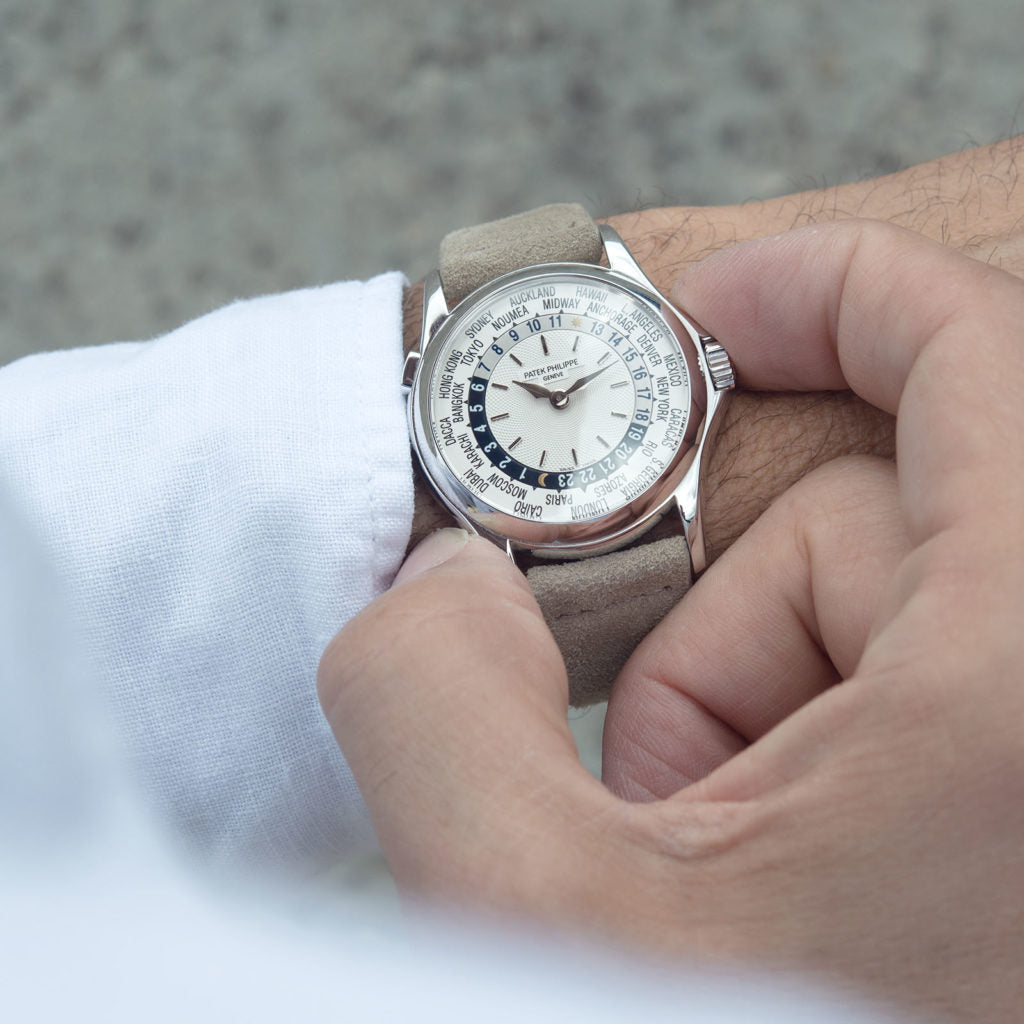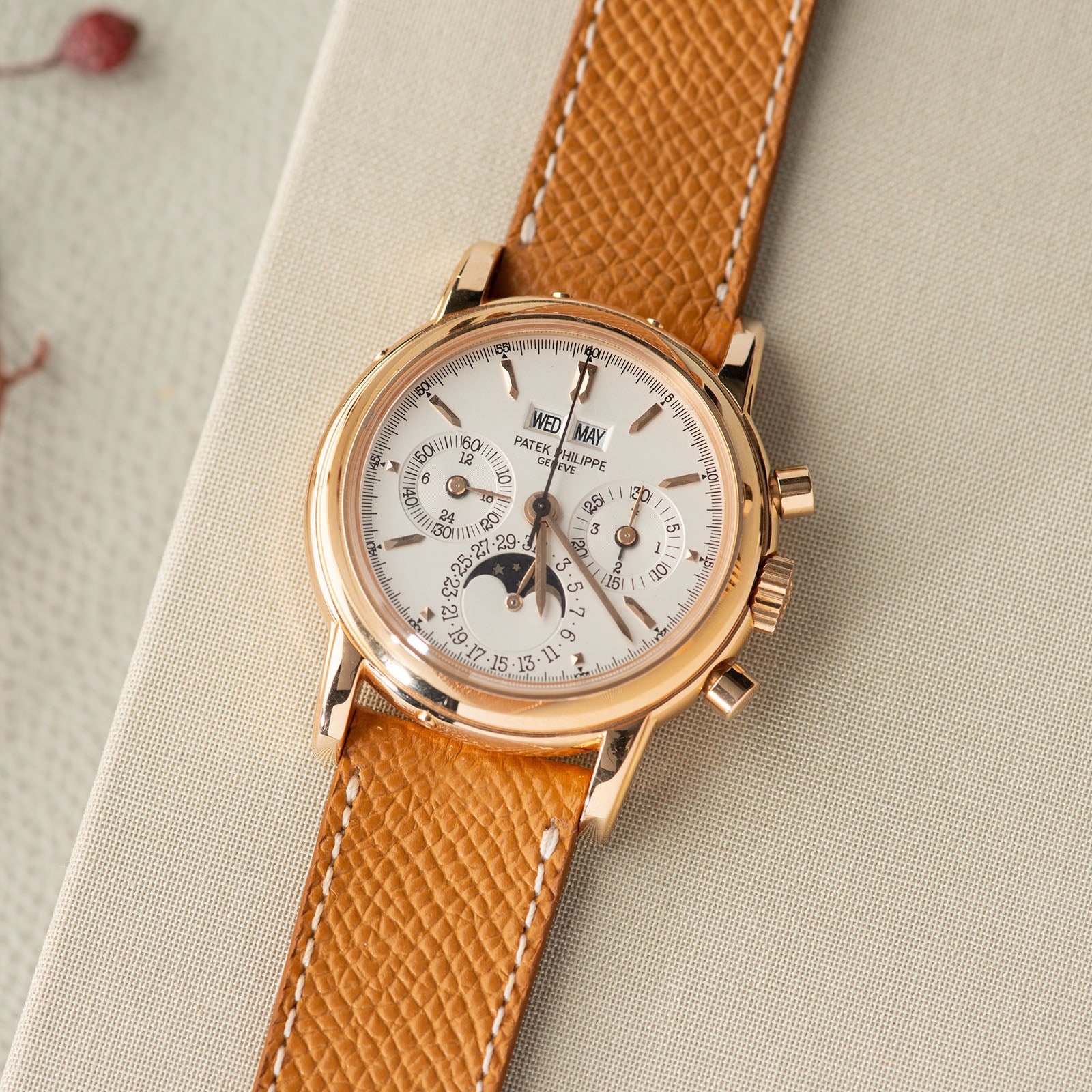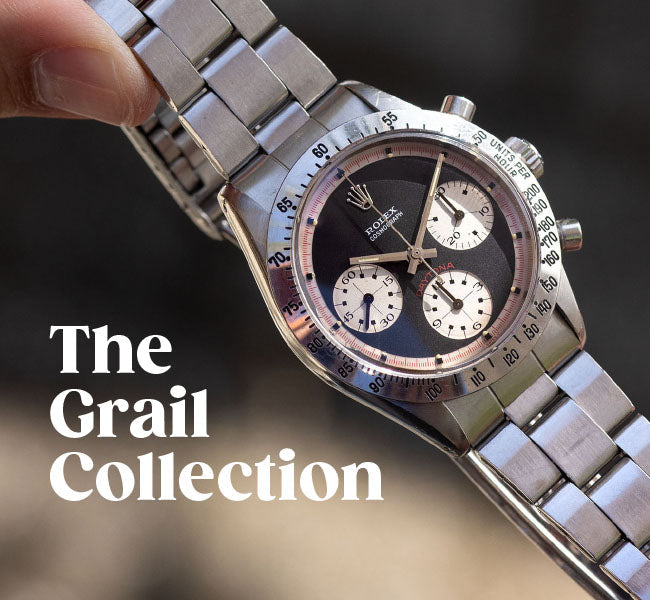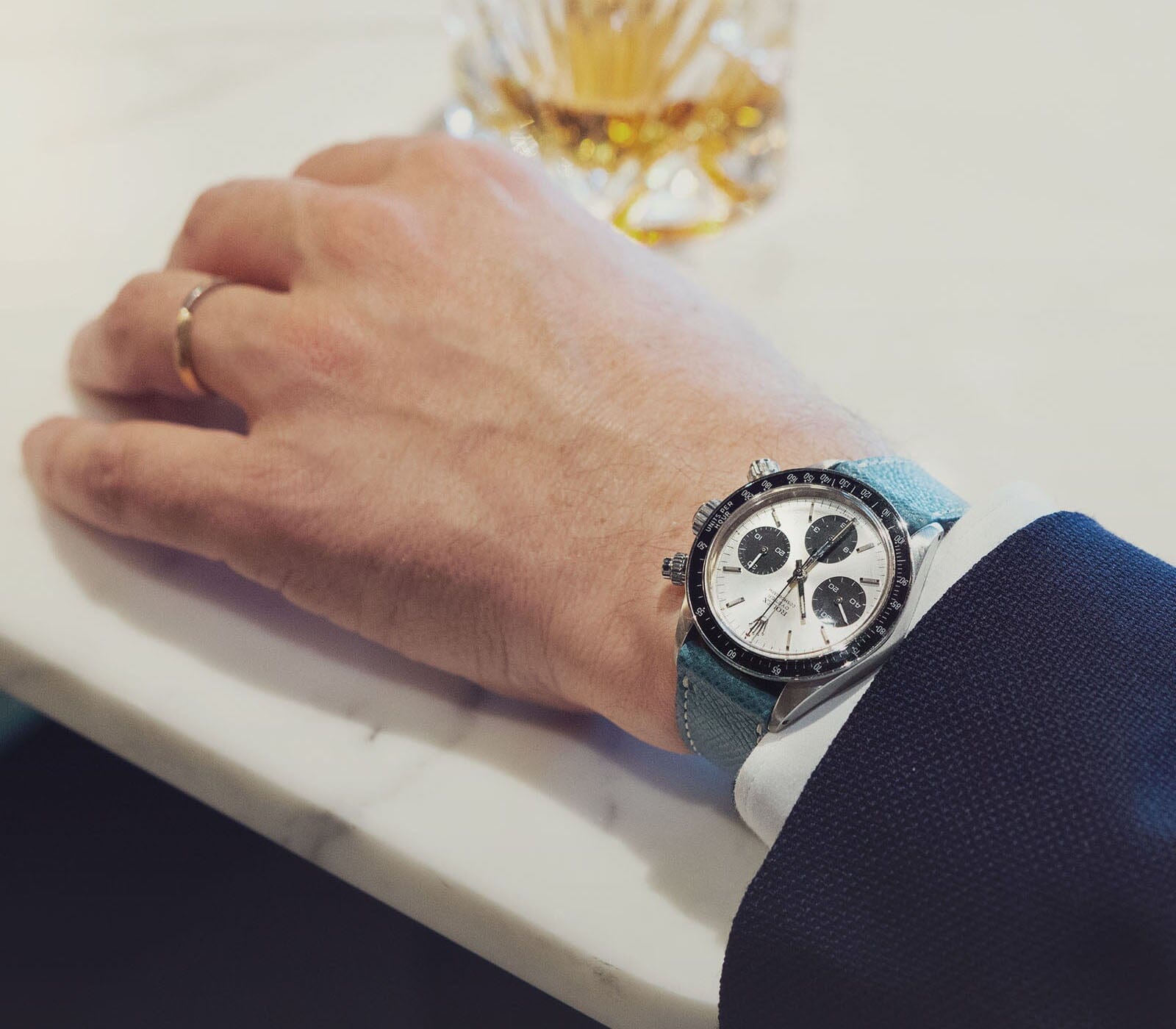
Patek Philippe Deconstructed - The New Style
There was always a joke amongst vintage Rolex collectors that buying a Patek Philippe wristwatch was something you reserved for your 50th or 60th birthday. And as for sapphire glass watches…forget it. ‘Plexi or die’ was the motto of the four-digit-reference Rolex collectors. Times change and as collectors are now fascinated with five and six-digit reference Rolex watches with, quelle horreur, sapphire crystals, so too are they looking at other brands. Modern era Patek Philippes (post 1990s) are watches that we’ve always looked at with affection as they are in good sized cases and, like Rolex sports watches, are steeped in generational history that gives the modern era watches a pedigree that other modern pieces can’t even get close to.

Bulang and Sons has always been about so much more than watches and accessories – it was conceived as a celebration of the collecting world and friendships made therein. One such great friend is Peter aka @ex_omega on Instagram. A passionate collector of the very highest quality watches, Peter loves vintage Rolex as much as he does modern Patek. Always keen to disturb the status quo with his eclectic combinations of watches and straps, it was a conversation with Peter about challenging the perception of how a ‘Patek’ should be worn that led to this adventure. Deconstructing the Patek look with Bulang and Sons style and fashion elements. We hope you love it guys!

But still, there is something about the slightly uptight, old-fashioned gloss crocodile straps and bourgeoisie image of Patek ‘dress watches’ that is hard to escape. Today we want to put the watches in a different context and style them in our way. Instead of looking after it for the next generation, look after and enjoy your Patek today…

Reference 3970 – Perpetual Calendar
The perpetual calendar is a serous complication and is highly prized amongst collectors of high-end horology. The 3970 was introduced in 1986 and was in production until 2004. The lineage of the 3970 can be traced back to the 1518, which was Patek’s first series-produced perpetual calendar. Introduced in 1941, the 1518 was the beginning of the three-sub register, chronograph with day and month window, date and moon-phase. In 1953 it was replaced with the legendary 2499 – the master of the Patek perpetual calendar chronos. The 2499 was made until 1986 when Patek unveiled the 3970.



Measuring 36mm (1.5mm less than the 2499) and available in yellow, white, rose gold and platinum it featured three sub dials. At the three o’clock sub dial you can see the leap year indicator and 30 minute chrono counter and at nine o’clock the running seconds and chronograph hours. The six o’clock sub dial has a date indictor around the moon-phase cut out. Directly below the double-baton at 12 o’clock there are the day and month windows. Now, interestingly this is A LOT of information and yet the dial is neither cluttered nor difficult to decipher. Instead, it’s a very clean and aesthetically pure looking watch. And the great thing is, if you keep it wound it won’t need adjusting until 2100, when the leap year will be missed out!







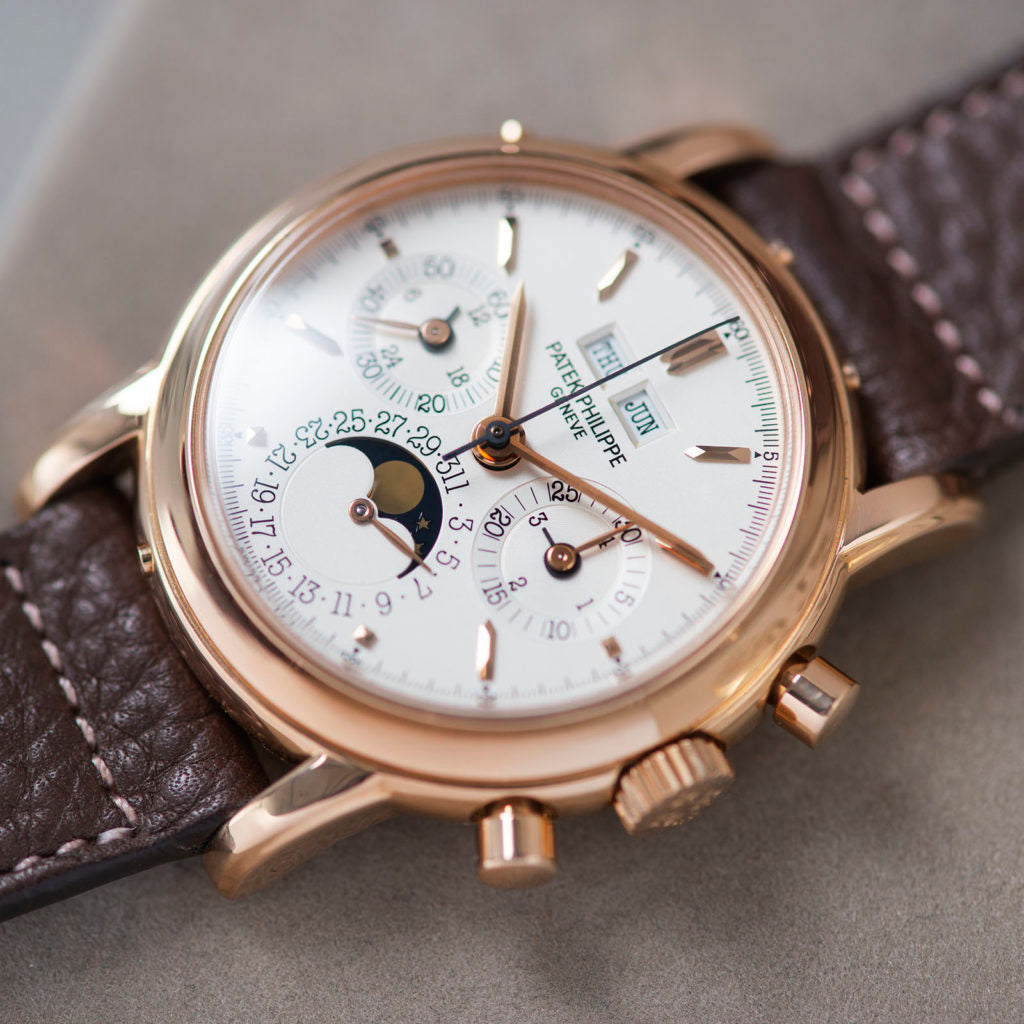


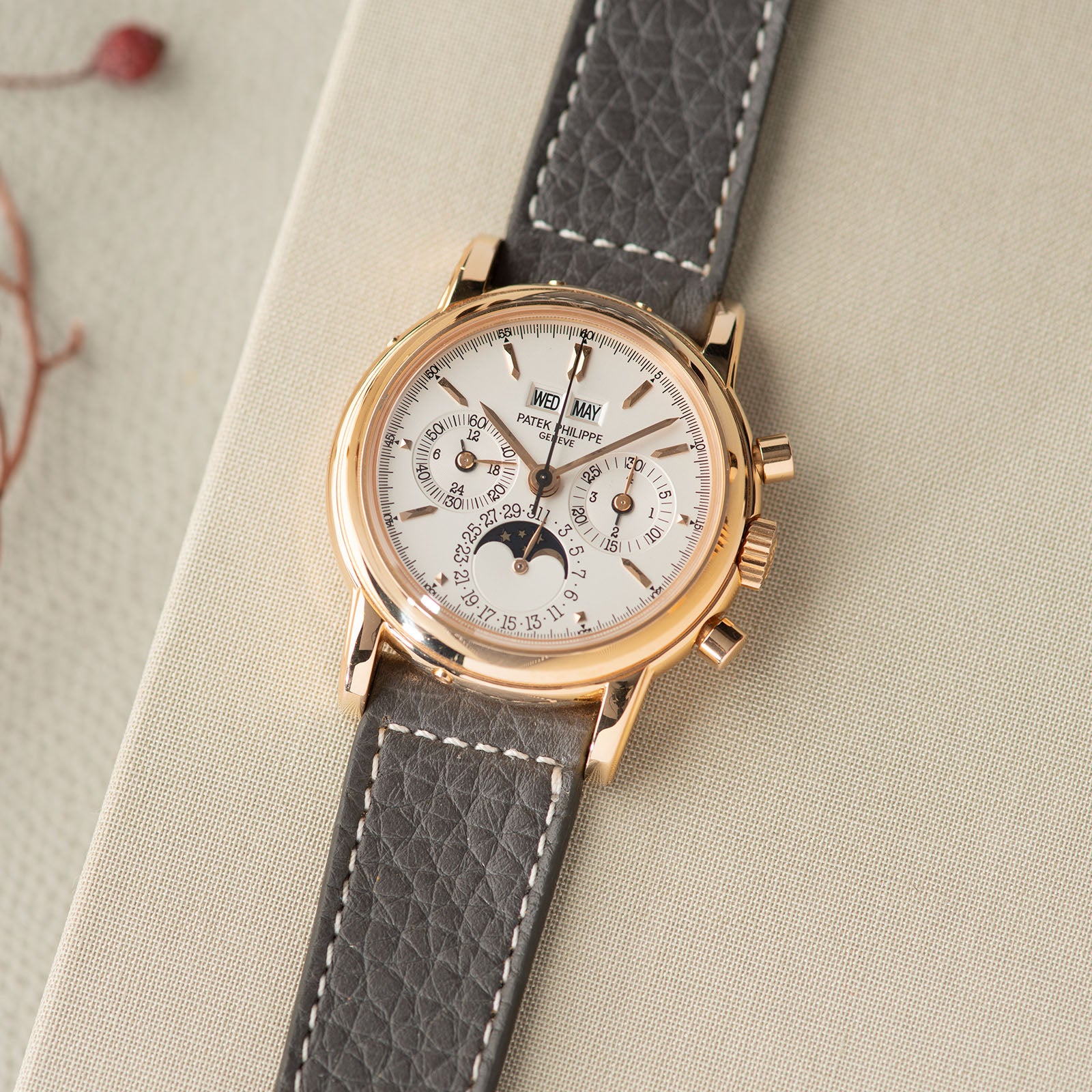

Reference 5110 – World Time
The first word timer from Patek Philippe dates back to the late 1930s. Reference 1415 was a small watch introduced in 1939, with an engraved bezel displaying the names of countries, that could be rotated to position ‘local’ time (wherever you were) and simultaneously show the time in the other countries on the bezel thanks to a 24hr rotating disk on the outside of the dial. Some of the most coveted 1415s had cloisonné enameled centre dials, showing world maps. In 1953 Patek released the reference 2523 World Time that featured two winding crowns. The usual one at three o’clock to set the time and an additional one at nine o’clock to set the rotating inner ring, thus allowing the wearer to view all time zones simultaneously. The technology that made these complications possible was licensed from a gentleman called Louis Cottier, who had devised the system.

The 2523 was phased out at the end of the 1960s and it wasn’t until the year 2000 that Patek reintroduced the world timer with reference 5110. In a good sized 37mm case, the watch was available in yellow, rose and white gold as well as platinum. Made for only six years, until the introduction of reference 5130, the 5110 picked up where reference 2523 left off with simultaneous display of all time zones via two central rotating disks on the outside of a central guilloche dial. The outer disc fetures the cities and the inner disk (24 hour reading) showing the relevant time zone. The change is easily made using the pusher at ten o’clock on the case – a single push advances the hour and changes the city and 24-hour disc accordingly; this is seriously clever horology.






Aesthetically, the watch is very much of the Calatrava family, but the stand-out feature is the centre dial. The hand-finished guilloche dial is beautiful. Subtle on the white gold model in white and more pronounced on the platinum model in blue. Super stylish and of the very highest finish, it’s so good. And on a Single Pass strap? Get me one now!





Reference 5396 – Annual Calendar
Where the perpetual calendar only has to be adjusted when a leap year is missed out (as stated, the next time this will happen is 2100), an annual calendar has to be adjusted on 1st March every year, as the movement cannot ‘work with’ the 28 or 29 days in February; only the months with 30 and 31 days. Patek’s first annual calendar was launched surprisingly late (for me anyway) in 1996 with reference 5035. The latest version of the annual calendar reference 5396 was introduced in 2016 to celebrate 20 years of the Patek Philippe annual calendar.

This example is a 5396R in rose gold, such a wonderfully warm hue for a watch. The watch is cased in a 38.5mm Calatrava-esque style with a very clean and simple dial layout. The moon-phase sits within the 24-hour dialwith the date directly beneath. The day and month sit in the classic position below 12 o’clock, which is set with a double applied baton marker. The dauphine hands add to the watch’s clean aesthetic.

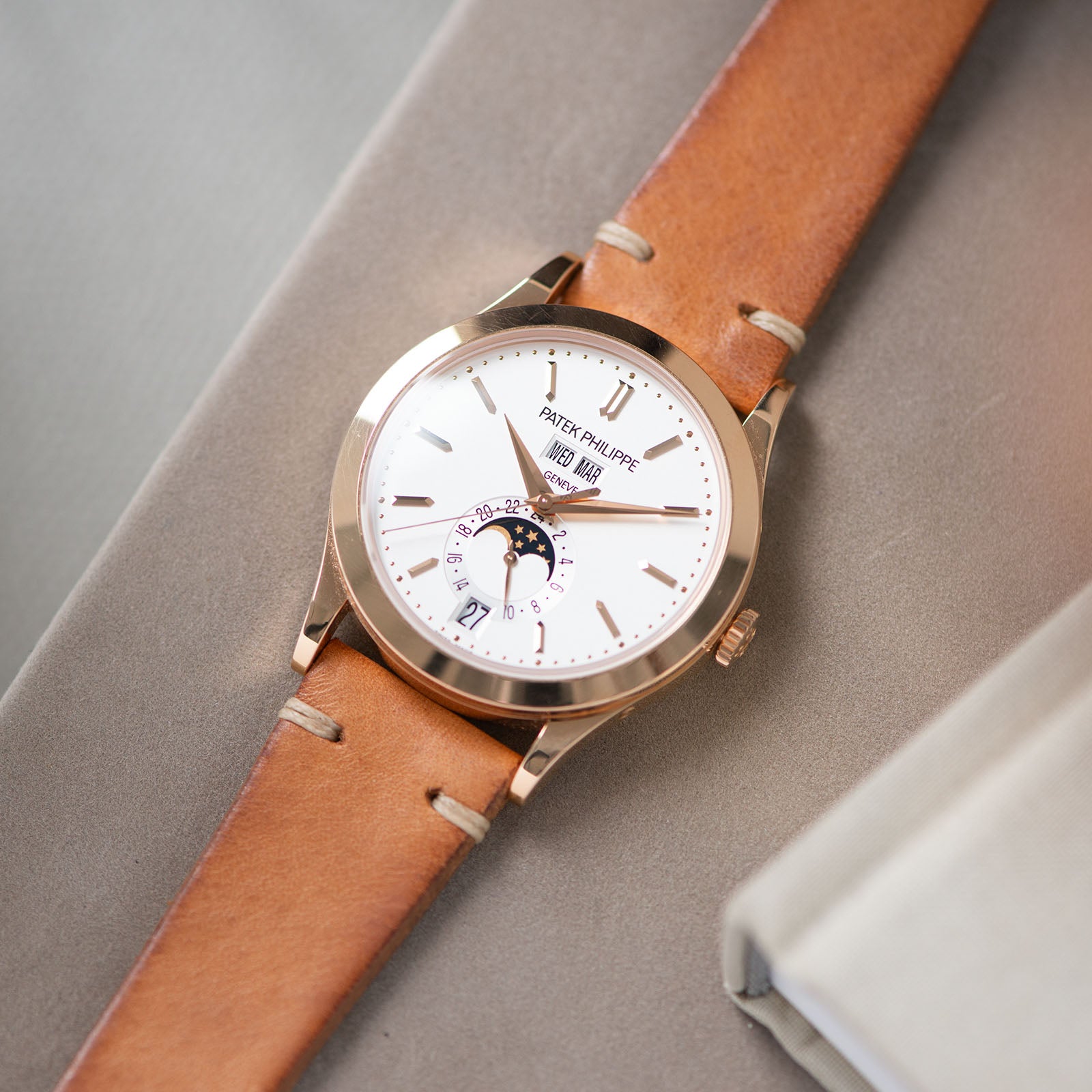
From Fusty to Funky
We hope these different options help to give you guys a new and different perspective on these classic Pateks. Its amazing the difference a strap can make and when styled with different bracelets and cuffs, a watch that was once seen as a little fusty can become more than a little funky.
Team Bulang



